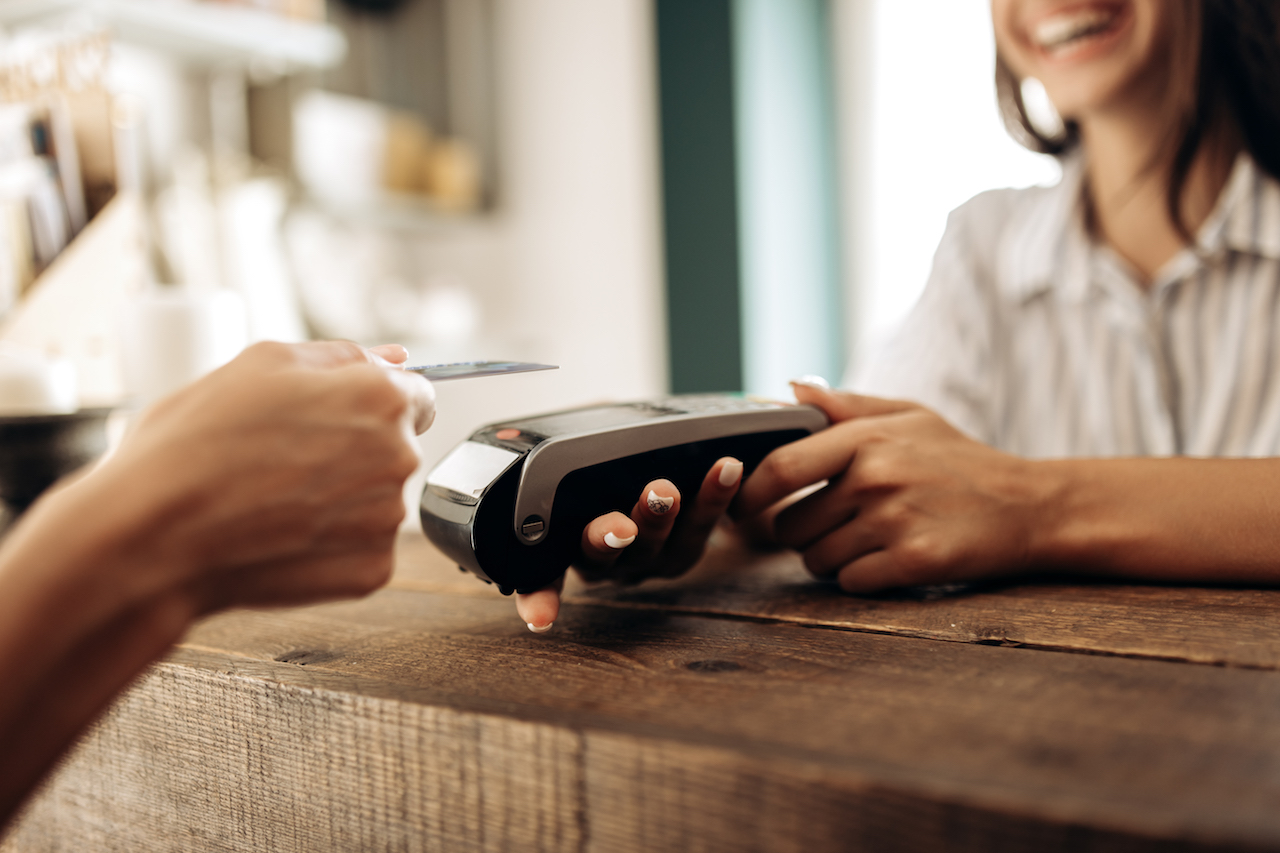If you want your small business to survive and grow, then you have to be able to take card payments.
Do Businesses Need to Take Card Payments?
On one level, you need to be able to take card payments because fewer people are using cash these days. This is a trend that looks set to grow. So it’s really no exaggeration to say that, if you can’t take card payments, then you might not get paid at all.
You’ll have to turn away so many potential customers that you’re bound to make a loss!
But beyond this, there are many benefits to taking card payments.

The Business Benefits of Card Payments
- You’ll get paid faster, with no need to “cash up” at the end of the day, or to make regular trips to the bank.
- It’s more secure, and there’s less risk of loss through break-ins and burglaries.
- With instant and guaranteed payments, you’ll find it easier to make cashflow forecasts, so you can better plan for long-term growth.
- Accounting will be easier, as your bank statements will automatically give you a detailed breakdown of income.
- Because customers find card payments more convenient, you’ll likely make more sales. Plus, contact payments may make customers more likely to make impulse purchases – which means even more income for you!
How Small Businesses Can Take Card Payments with a Card Machine
- First, you’ll need to open a dedicated merchant account with a bank or a specialist financial institution.
- Once you register, they’ll process all card transactions on your behalf, and they’ll even provide you with a card reader! Most merchant account providers also offer virtual terminal services, which you can use to take card payments over the phone.
- Most banks can register you in a matter of days, so you could be ready to take card payments in no time at all.
- Alternatively, you might choose to bypass the bank and instead work with an independent merchant account provider, such as PayPal or Square.
How Much Does It Cost to Take Card Payments?
The catch is that banks and institutions invariably charge for this service. You might have to pay an upfront fee. You’ll also have to pay a merchant service charge (MSC), and it’ll vary depending on who you register with. On top of this, you’ll have to pay commission rates to certain card providers, such as American Express.
Some small businesses pass on these charges to their customers. They might add a sales fee to card payments, or they might only accept card payments for sales over a certain amount. However, these measures are never popular with customers!
Given the many benefits of accepting card payments, MSC payments are more than justified. If your aim is to boost sales and improve customer service, you might consider MSC costs as a price worth paying yourself.
Read our complete guide to business bank accounts.
Startups has a great online service that allows you to compare merchant accounts side by side.
How Small Businesses Can Take Card Payments Online
If you want to take card payments online, you’ll need to:
- Register with a payment gateway service.
- If you plan on selling products online, you’ll have to set up an ecommerce website. Some of these have integrated payment gateways. Others will require you to set up a gateway with a third party provider. Not all gateways are compatible with all ecommerce platforms, so make sure you check before you set anything up!
In some cases, when you register with a merchant account provider, they’ll provide you with a payment gateway to integrate into your ecommerce site. Some will even allow you to set up a brand new ecommerce site with them.
So to avoid compatibility issues, if you’re absolutely new to this, it might be a good idea to shop around for a good merchant account before you shop around for a website provider. SumUp and Stripe are good places to start.
PayPal allows you to add payment buttons to sites that’ll enable you to accept payments from customer PayPal accounts, as well as credit and debit card payments. So this might be a good option if you already have a website, or if you’re selling services rather than products.
Again, the downside is that payment gateway providers invariably charge per transaction. But once more, if accepting a card payment is the difference between a sale and no sale, then these charges are more than justified.
Essential Cover for Small Businesses
As we move closer towards a cashless society, all small businesses should consider offering their customers the ability to pay by card.
Another thing that no small business should do without is insurance. If you have adequate cover, you’ll be able to manage the many risks that come from running a business, enabling you to secure your long-term growth.
At Tapoly, we specialise in giving small businesses comprehensive insurance cover for less. You can get tailored self-employed insurance starting at just 35p a day, with no hidden fees.
If you have any questions, or you’d like to discuss your options, you can contact the Tapoly team at info@tapoly.com. You can also call our helpline on +44(0)207 846 0108, or you can use our online website chat.

